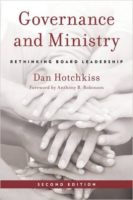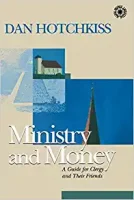
I don’t know why it took so long, but finally the U.S. wealth gap has become a topic of political discussion. The conversation is not easy, in part because most of us rarely talk with people outside our economic group. Churches and synagogues—though most draw only from a small slice of the total spectrum—are still potentially places where richer and poorer people meet as equals. By handling these meetings well, we can help create support for public policies and private actions that promote equality.
Since the early 1970s, the richest Americans have gained while others have at best held steady. Wealth inequality today is like the Gatsby era of the 1920s. If trends continue, we could reach levels not seen since the Gilded Age of the Carnegies and Rockefellers in the 1890s. Our landscape is still graced by monumental churches, public libraries, and town halls from those past eras. Since the 1980s, we’ve experienced yet another building boom—except that the rich today more often put their names on college and museum buildings than on civic or religious ones.
Great architecture makes our cities beautiful—but economic inequality makes them harsh and inhumane. Seeing wealth alongside poverty erodes our sensitivity to suffering. If our politics have become polarized—both in society and congregations—we need look no further for an explanation.
Economic inequality in congregations
Within congregations, differences in wealth are usually much smaller than in society at large. Overpaid CEOs rarely worship alongside minimum-wage workers. But families with two high earners do rub shoulders in the pews with struggling single parents and with elders bankrupted by illness. Wealth differences inside congregations have also grown. More than ever, we need intentional ways to connect people inequality has put asunder.
Jealousy is one kind of discomfort inequality can stimulate—and it’s tempting for the rich to suppose that envy is the only reason people care about their wealth. But the presence of a rich elite also causes practical problems for the non-rich. In many cities, for example, rich people have bid up land and housing prices so high the non-rich are forced out. When a few can pay, if necessary, 50 to 100 times as much for housing as the rest, developers stop building cheaper housing. Workers commute farther, poor neighborhoods deteriorate and gentrify, and homelessness increases. In this and many other ways, rich people crowd the non-rich simply by their presence—in society and also inside congregations.
Pretending to be equal
Inside congregations, one way we deal with the discomfort of wealth differences is to pretend they don’t exist. Giving levels, for example, are kept secret. In part, this is done to make sure we all meet as equals—as we should—in God’s house. The trouble is—it doesn’t work. People know who has more, who struggles, and whose giving can’t be spared.
Pretend equality eventually breaks down, especially when the congregation turns to raising money. At pledge time—and even more in capital campaigns—we pay extra attention to those we hope will give the most. Why? Willie Sutton, asked why he robbed banks, supposedly explained, “Because that’s where the money is.” For the same reason, even egalitarian congregations spend more time asking for money from the rich than from the poor.
A few observations may ease acceptance of this fact. One is that egalitarian principles apply even to fundraising. As Jesus pointed out, a poor widow’s small gift represents a greater sacrifice than a large gift from a rich man. For this reason, a fund drive should strive for 100% participation, so that the gifts of all are honored.
But fund drives should also strive to raise the money needed to fulfil the congregation’s mission—and for this, large gifts are more important than small ones. Pretend egalitarianism is a major obstacle to fund-raising success in many congregations. Every child of God ought to be equal, but we don’t achieve that goal (or much else) by pretending wealth is equally distributed, when it is not.
When we recruit volunteers, we do not pretend everybody has the same amount of time to give. When we thank volunteers, we rarely worry that the ones who work the hardest do so only partly because they’re generous. Partly it’s because they can afford to give more time because of good luck, helpful spouses, pensions, and—yes—sometimes wealth. We should take care to honor givers of small bits of time—and worry less about honoring the givers of large gifts of money.
How we give and spend
In many congregations, secrecy about financial giving is founded in a false sense of tradition. Older congregations often showcase old pew-rental charts, recalling times when differences of wealth were advertised on every Sabbath. But before the Industrial Revolution, most wealth was held openly as land. Everybody knew who owned what farm. Only with the growth of corporations and the modern banking system did it become possible for rich people to “pass” as middle-class.
About half of pastors—according to a survey that may now be out of date—prefer not to know how much their members give. When I question pastors about this, often they explain that they want to treat everybody equally, which would be difficult if they knew who gave what.
I suspect that many pastors already discriminate based on what they imagine people give. As a consultant, I have tested this by sharing information. Pastors often feel betrayed to learn that people who have thrown their weight around as major givers actually are not.
Economic differences assert themselves not only in how funds are raised, but also when it comes to spending money. Some congregations spend a great deal on buildings, staff, and services, while others thrive in Spartan quarters, using volunteers to sweep the floor, cook food, and lead worship. Not surprisingly, affluent congregations spend more, just as wealthy people live in larger houses and hire more housekeepers, day care workers, and professionals.
Tongue-tied about money
Congregations of poor and working people tend to be less tongue-tied about money. Some of them offer programs to help people save and build home equity as well as to encourage them to tithe. I’m glad to see such programs spread in recent years to congregations that would once have spurned them—perhaps prompted by a dawning sense that money insecurity is now a problem for the bottom 99%, not just for a few poor people. Frankness about wealth goes hand in hand with frankness about vulnerability, and that is a good thing.
All communities—and especially communites of faith—should be communities of equals. So I’m glad we’re finally talking about economic inequality. I’m gratified that tax and policy proposals aimed at ending the long trend toward concentration are receiving some attention and support, even among members of the 1 percent and 0.1 percent. And I’m glad some congregations have moved beyond simplicities like “God will provide” to offer spaces where people can meet across economic lines of difference without having to pretend those lines do not exist.
Dan Hotchkiss has consulted with a wide spectrum of churches, synagogues, and other organizations spanning 33 denominational families. Through his coaching, teaching, and writing, Dan has touched the lives of an even wider range of leaders. His focus is to help organizations engage their constituents in discerning what their mission calls for at a given time, and to empower leaders to act boldly and creatively.
Dan coaches leaders and consults selectively with congregations and other mission-driven groups, mostly by phone and videoconference, from his home near Boston. Prior to consulting independently, Dan served as a Unitarian Universalist parish minister, denominational executive, and senior consultant for the Alban Institute.


